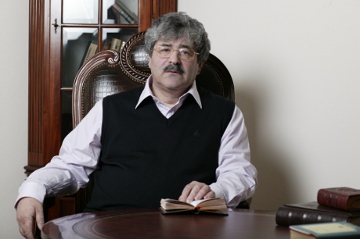
Looking at the recent past, one could not help but wonder what was at the root of the breakdown in the early 1990s when the principle of personnel policy still remained quite rational in many areas. When, undoubtedly in the engagement of new nominees from outside of the political sphere, professionalism was still valued. The "Chicago Boys," whispered in the ears of power of the phantasmagoria of monetarism, but could not so soon pierce the thick skin of the national sense in such a large country. "He knows his stuff, he is one of the pros," still served as a criterion. If you do not select someone new, then at least maintain the old cadres. What was needed was to negotiate the mechanisms of the crisis, which discredited a layer of experienced workers who themselves were allegedly not able to adapt to the "shock therapy."
The next important step was the selection of crisis managers, brought in to "save and rescue", and to dismiss a class of professionals from management.
Mercy was only shown to those who, in contrast to the "Jackasses," were ready to ruthlessly cut back on employees, cut back on social programs and, most importantly, did not venture to resist the privatization penny. The Europeans, jealous of American influence on the Kremlin, in getting acquainted with the labors of the school of Milton Friedman on the expanses of Russia, just shrugged their shoulders. At this historic moment in time, those "strange Russians" seemed to them even stranger. To the oddities of the Americans, they have of course long been accustomed.
One of the famous Italian writers was struck by the scale of the campaign to remove the so-called "red" managers, which in Soviet-times were not "red" in themselves. In studying their economic experience, he appreciated the efficiency of the enterprises they led in relation to Russia’s new economic conditions.
The first wave of crisis managers was quickly swept away. Having done their job, they cleared the way for a completely different cohort of managers. These smiling, always cheerful seeming gentlemen said, guys, it’s nothing personal. Unlike previous "crisis managers" they were smarter, more capable, and some even more educated. These were the people of the system, speaking a language that mere mortals could not decipher. When someone began to speak to them in a professional tongue, they cleverly "played dumb," and their cheerful faces grew even more cheerful. But there were no fools among them - they had come to take property and power, or rather, to take power through the acquisition of property.
These managers had one thing in common- with very few exceptions they were organically incapable of independent creativity. But they were geniuses in recycling! Any erotomaniac of business, in Chicago for example, might envy them!
They distinguished themselves by a particular humor with elements of spoof, just like in the famous film
«Seryozha». However, when they offered out a candy pacifier, no one dared to say to them: "Uncle, are you a fool?" Only the most important boss could afford to remark about one of them: "I do not understand, are you really so smart or are you just so cynical?"
The second wave of managers, very quickly became owners, and finally broke the spirit of the professionals to resist. Today, this is an important psychological factor in the problem of the appointment of political nominees to senior posts.
This conclusion may seem strange, as this practice has long been the norm in many countries, and does not in itself pose special threats. Also today, as one of the essential fixes for the errors of the past, many of the programs of action were specified and publicly announced on the eve of elections.
However, the political mandate to answer the question: "What to do?" in real life always comes up against the question: "How to do it?" The solution to this question depends on the professionals, and success of the business - from the creative interaction of the appointee with the experts.
In some developed countries, the positions of some government ministers, are not subject to rotation, even with a change of political power, and are designed to provide professional continuity. The Russian style of administration still maintains the principles of the 1990s, where the nominated senior manager brought with him an entire suite of "his own" people, who were as far removed from the particular business, as “The Man on the Moon.”
They were placed, of course, in managerial positions, and the remaining professionals were left without any desire for creative collaboration with them.
A layman always compensates for his professional handicap with increased aggressiveness. In turn, given the sad experience of the past, a qualified person has learned how to play the fool and not without guile to play up to the "new commissars." The result, one can say, is obvious.
In their time, the Bolsheviks, having realized the failure of military communism, raised the slogan "Don’t you dare to command!" Who would have thought that it would remain relevant in today’s world?<!--EndFragment-->
read more in our Telegram-channel https://t.me/The_International_Affairs

 15:16 22.05.2012 •
15:16 22.05.2012 •






















